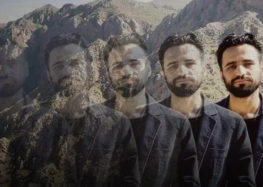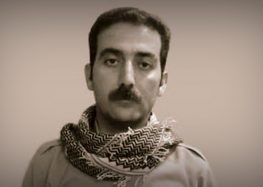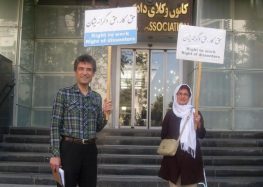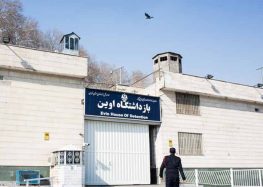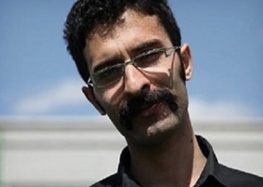Names of Mass Execution Victims in Iran Still Not Released
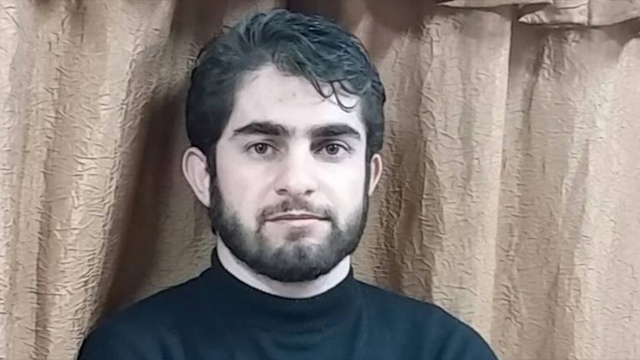
Only 10 of the 20 Sunni Prisoners Killed Are Identified by Authorities
Iran is withholding the names of ten of the twenty Sunni prisoners who were executed in Rajaee Shahr Prison in the city of Karaj on August 2, 2016 even though the prosecutor general and the Intelligence Ministry have made statements on the executions.
The International Campaign for Human Rights in Iran has confirmed the names of ten of the victims who were hung: Bahman Rahimi, Mokhtar Rahimi, Yavar Rahimi, Arash Sharifi, Kaveh Oveisi, Kaveh Sharifi, Ahmad Nasiri, Behrouz Shahnazari, Taleb Maleki and Shahram Ahmadi.
Some of the other victims, the names of whom have not been confirmed by the authorities but have been verified by Campaign sources include: Omid Mahmoudi, Mohammad Gharibi, Kayvan Momenifard, Varia Ghaderi, Hekmat Araghi, Hamzeh Araghi and Ali Araghi.
Despite claims by Prosecutor General Mohammad Javad Montazeri that due process was carried out, family members of the victims and other sources close to the cases have asserted that many of the executed prisoners were blocked from using lawyers of their choice and were quickly prosecuted in secret trials based on charges brought by the security establishment and confessions obtained under torture and threats.
The Islamic Republic has a long and documented history of forcing detainees to make false confessions.
The Prosecutor’s Office in Iran’s Kurdistan Province has meanwhile accused the victims of being members of the radical Sunni Islamic group “Towhid va Jihad” allegedly responsible for the “assassination and murder” of 21 people and for wounding 41 others.
The Intelligence Ministry also announced that 102 alleged members and sympathizers of the group were arrested in armed confrontations that led to the deaths of a number of police officers and security agents.
Describing the experience of execution victim Shahram Ahmadi while he was in prison, a former Sunni prisoner told the Campaign in 2013: “He was told, ‘We will kill you like a dog, because you look like a dog…Just as we hung your brother, Ahmad Bahrami, we will kill you, too.’ My other friends, who were sick, started to cry when they saw Shahram. They are afraid to even ask for medical attention. We are suffocating here. It’s very hard for you to comprehend what I’m saying.”
Ahmadi was executed before his family, who were notified the day of the execution, could reach him. “They called us this morning (August 2) to go visit him in Tehran for the last time,” a member of the family told the Campaign. “We got on the road, but they called us on our way and told us not to go to prison, and to go to the morgue in Kahrizak (city) instead. We realized he must have been executed. They called again to say that we should go directly to Behesht-e Zahra Cemetery. They had executed him before we arrived. We were only able to get the body.”
Based on information gathered by the Campaign, there were 29 Sunni political prisoners on death row in Rajaee Shahr Prison prior to the August 2 mass execution: Kaveh Oveisi, Behrouz Shahnazari, Taleb Maleki, Shahram Ahmadi, Arash Sharifi, Varia Ghaderifard, Kayvan Momenifard, Barzan Nasrollahzadeh, Alam Barmashti, Pouria Mohammadi, Ahmad Nasiri, Edris Nemati, Farzad Honarjou, Seyyed Shahou Ebrahimi, Mohammad Yavar Rahimi, Bahman Rahimi, Mokhtar Rahimi, Mohammad Gharibi, Farshid Naseri, Mohammad Kayvan Karimi, Amjad Salehi, Omid Payvand, Ali Mojahedi, Hekmat Sharifi, Omar Abdollahi, Omid Mahmoudi, Abdolrahman Sanganim, and Seyyed Jamal Seyyed Mousavi.
Members of ethnic or religious minorities in Iran who engage in criticism of the government are singled out by the authorities for particularly harsh treatment, and there is a well-documented history of the Judiciary disproportionately meting out capital punishment to minority activists.

